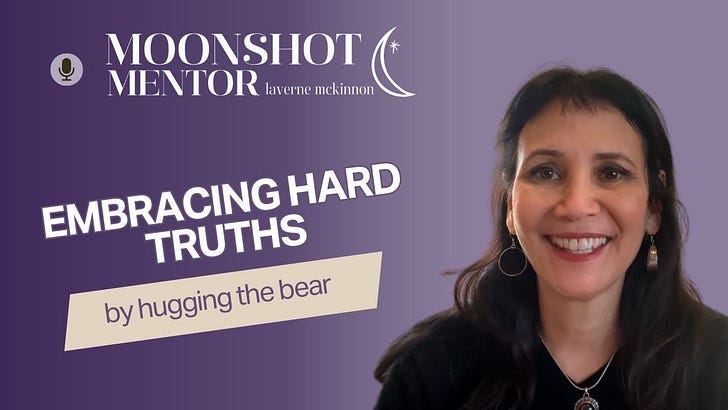If you’re exhausted comparing yourself to others or constantly wonder if you’re doing enough, consider using key performance indicators (KPIs) to measure your career progress and success as opposed to wondering why someone else is getting promoted or hired.
Believe me, I’ve been there and so many of my clients have been there too. Wondering why Pat got bumped up when they started at the company after you. Wondering why Jerry got an interview with the studio and you didn’t. Why you got left off the email chain and were not included in the strategy meeting.
The comparison list is endless, not productive and extremely hurtful and for most people de-motivating.
So instead of comparing yourself to others or beating yourself up for not doing enough, embrace KPIs and focus on your own progress.
WHY ARE KPIs HELPFUL?
KPIs provide a structure to determine what success looks like based on your values and identifies the steps needed to achieve that success. It takes the wishing, hoping, and praying for things to be different and provides you with a way to measure your individual and unique progress.
I first learned about KPIs when I got my MBA years and years ago, and they came in handy as I worked my way up corporate ladders and got funding for my production company.


ENTERTAINMENT INDUSTRY KPIs
Generally, KPIs in the entertainment industry are focused on the number of projects greenlit, how financially lucrative they are, and how well-received they are by critics and audiences. Of course, every company and individual is different, but these three KPIs are the primary indicators of success.
So I learned how to translate my entertainment experiences aka wins into identifiable success metrics like:
Highest testing pilots in network history
#1 rated drama in key demos three seasons in a row
Increased production volume by $67M over an 18 month period
Your ability to specifically identify, track, measure and articulate your wins is critical to your long-term career success, and more importantly your sense of confidence, worthiness and fulfillment.
That being said, it’s more critical for you to identify what success means to you personally than chasing after industry KPIs at the expense of your values, purpose, and well-being.
SO WHAT IS A KEY PERFORMANCE INDICATOR?
Before we go any further, let’s drill down a bit more on the definition of a KPI. As I said earlier, KPI is a business term used to describe key performance indicators. It’s a form of quantifiable measurement to determine whether your actions are bringing you closer to, meeting or exceeding your goals.
A super simple example: if you’re a writer your goal might be to complete a screenplay. Your KPI might be to write five pages per day, five days per week.
In this situation, the question of whether one is doing enough can be measured. Five pages per day are either done or not done.
A KPI needs to be clearly measurable.
A RADICAL IDEA ON HOW TO USE KPIs
My beef with KPIs is that they are focused on outcomes and don’t make a lot of room for process. And I'm a big believer that process and outcome are linked.
Consider this: I could starve myself for five days and lose a bunch of weight, but that’s not actually healthy or sustainable in the long run. I’ve met my goal of losing 5 pounds, but at what cost?
We want to make sure that achieving outcomes don’t crush us. Which is why including process KPIs will help you achieve healthy long-term success – it doesn’t mean that you’ll always achieve your goal, but you can be fulfilled in living your values while getting there. And that to me is success.
The hard truth is that we can’t always control outcomes. KPIs are a great tool to try and help control it, but there are always factors outside of our control. Like a pandemic or a strike or marketplace contractions.
The best use of a KPI is to identify your values and include process steps in your KPIs that reflect those values. So if we go back to losing 5 lbs, I may choose to include process KPIs like going to the gym three times per week, not eating three hours before bed, eating five colorful fruits and vegetables every day, eating until I’m 80% full. An outcome KPI based on these process KPIs might be to lose one pound per week for five weeks.
BUT I CAN’T STOP COMPARING MYSELF TO OTHERS
I get it because I’ve been there.
If you take the time to identify your values and develop process KPIs based on those values, you will find yourself less and less inclined to compare yourself to others.
Why? Because you are in alignment with yourself and you will feel fulfilled. When we are in alignment, we don’t feel pulled to look at what other people are doing in comparison to ourselves. There’s no need to compare because we are pleased with what we are doing and it feels good to honor your values.
It feels bad to honor other people’s values. It shows up as grumpiness, irritation, impatience, spite, resentment.
Now you may still get frustrated, upset, and angry as you work towards achieving your goals. But now you have a source to clearly identify why. Because your values have been stepped on — by you, by someone or a situation.
When you compare yourself to other people, you get caught in the web of living other people’s values and are constantly wondering if you’re doing enough because you’re not experiencing success. You’re a ballerina playing football, or a scuba diver climbing Mt. Kilimanjaro, or a writer crunching numbers.
CASE STUDY
My client “Joan” was miserable in her role as an account exec at a boutique agency and was jealous of her friends who were thriving in their jobs. She couldn’t figure out what made them so “great” and what made her “suck,”
We first drilled down on Joan’s misery. Over time, she was able to identify how much she hated making cold calls and disliked managing data through spreadsheets. She loved interfacing with clients, building rapport, helping them to identify their needs and facilitating communication – and the clients loved her. It took a moment to find this clarity and to separate out specifically what worked for her and what didn’t.
The second step was identifying what values were being honored and which were being stepped on in her role. This is what we found:
Values being honored:
Being of service
Relationships, community, teamwork, camaraderie
Clarity (she didn’t see how cold calls converted to clients)
Values being stepped on:
Freedom, independence
Problem-solving
Camaraderie
When Joan saw how much her core values were being stepped on by the company culture, she had a big “a-ha.” No one was out to get her or make her miserable, it was simply the way things were done by the founders and became cemented through the years. At this point, Joan had a decision point of whether she should stay or leave since there was a values mis-alignment. She chose to stay because she was curious if she could make some personal changes first to not feel so miserable. Joan recognized that she would take her “baggage” wherever she went so wanted to see what she could unload through our work together.
The third step was to identify KPIs that took into consideration Joan’s values and what she was really good at in order for her to find happiness at work. We went back and forth on this for a few sessions and initially identified five traditional KPIs.
Decrease cold calling time from 15 hours per week to 3 hours (Joan recognized this was an aspect of her job AND she felt she could generate new business in other ways besides cold calling)
As a result of decreasing cold calling time, she would reduce her time in “spreadsheet hell" from 7 hours per week to 1 hour per week.
Utilize 5% of her time with existing clients to ask for referrals and testimonials.
Host 1 dinner per month with 4 prospective clients as a type of executive roundtable in order to build relationships.
Secure 4 new clients per quarter.
Joan was able to use the language of KPIs with her boss to provide a roadmap of how she could still meet the company’s revenue goals while playing to her strengths. Due to her strong relationship with clients, the company gave her three months to pilot the new process despite it being outside the company culture.
Joan missed her first quarter KPI of four new clients, but did secure two. However, the monthly dinners she hosted were a huge hit and she had 13 (!) prospective clients in the queue that could lead to exceeding the annual revenue goals by 22%. Joan received the okay to keep moving forward … and she was happier but not happy.
This is when we brainstormed around process KPIs that honored her values and focused on happiness. While the other KPIs are fine, they were solely focused on business outcomes that would alter how she did her job which affected her happiness, but didn’t really get to the core issue.
In drilling down even further on what was important, Joan realized that she didn’t want to move up the ladder. That success metric was something that was instilled in her from her parents, but was not something that she truly valued. She did want to have steady income in a stable role AND she wanted to have a vibrant personal life.
We came up with the following process KPIs based on Joan’s definition of success (in her words): A healthy marriage with 2-3 kids with trips to visit her family on the East Coast on a regular basis and time to go camping and travel. Here are her KPIs:
Take a walk outside of the company building once per day.
Leave work by 6 pm so she can make and have dinner with her family.
Spend every other winter break with her family (and the other winter breaks with her husband’s family.)
Set aside 3% of her salary into a travel fund.
In identifying measurable steps that Joan could take to up her happiness, she moved out of a place of feeling helpless to finding agency. Three months after she created this list, she added two additional KPIs:
Meditate for 10 minutes per day
Have I laughed today?
USING KPIs TO EVALUATE YOUR OVERALL CAREER SUCCESS
So many of my clients have historically measured their career success solely based on title, income, awards, and perks. While these are key indicators, I have found that expanding beyond the traditional usage of the term can be massively helpful in achieving success. Consider:
Work-life balance with much more emphasis on quality of life
Financial sufficiency over abundance (many of my clients are feeling repulsed by financial gluttony)
Flexibility to choose whether to work remotely, in the office or hybrid.
Stronger boundaries of not blending the personal with the professional: being friendly but not friends in the work environment.
These are just a few examples from my clients. Ultimately it’s really about how YOU define success vs. living someone else’s definition of it.
BOTTOM LINE
In the spiral of comparing ourselves to others and grappling with feelings of inadequacy, embracing key performance indicators (KPIs) can be a game-changer. Rather than endlessly wondering why someone else got that promotion or job offer, KPIs provide a tangible way to measure your own progress and success.
However, you can amplify the KPI tool by defining what success means to you and align your actions with your values. This way you can find fulfillment and confidence in your career journey.
It's truly about focusing on the process, not just the outcomes, and crafting KPIs that reflect your unique aspirations and priorities. Whether it's achieving work-life balance, financial sufficiency, or maintaining strong boundaries, using KPIs to evaluate your career success empowers you to live by your own standards, not someone else's.
So, instead of getting caught up in comparisons and external markers of success, take charge of your own narrative and define success on your own terms.
JOURNAL PROMPTS
Here are five journal prompts to help deepen your understanding of how to use KPIs:
1. Reflect on Your Values: Take some time to list out your core values. What principles guide your decisions and actions in both your personal and professional life? How do these values align with your career goals and aspirations?
2. Identify Your Strengths: Think about your strengths and areas of expertise. What are you really good at? How can you leverage these strengths to set meaningful KPIs that align with your career objectives? Consider how you can capitalize on your strengths to drive success in your chosen field.
3. Define Success on Your Terms: Consider what success looks like to you personally. Beyond traditional markers like job titles or salary, what aspects of your life and work bring you the most fulfillment and satisfaction? How can you create KPIs that reflect these broader definitions of success?
4. Brainstorm KPIs: Get creative and brainstorm a list of potential KPIs based on your values, strengths, and personal definition of success. Think about both outcome-oriented KPIs (e.g., achieving specific goals or milestones) and process-oriented KPIs (e.g., habits or behaviors that contribute to your long-term success).
5. Reflect on Progress: Regularly revisit and reflect on your KPIs. Are they still aligned with your goals and values? Are you making progress towards achieving them? What adjustments, if any, do you need to make to stay on track? Use your journal as a space to track your journey and celebrate your successes along the way.
🙌🏾 Questions? Would you like additional support in accessing resilience? I offer private coaching sessions as well as in-person and virtual group work. Reach out directly here to set up a complimentary consultation.
If you’re resonating with what you’re reading, please consider subscribing. What’s that mean?
🙌🏾 You’ll receive regular emails (with lots of heart and a bit of humor) that share a tool or insight from my coaching practice.
🙌🏾 Typically the blog and blogcast will have a question at the end to provoke thought that supports you in your growth.
🙌🏾 Updates on offerings, free stuff, recommendations, referrals.
My blog aims to help people achieve their ambitious goals, their moonshot if you will. 😃 Oftentimes, though, we neglect an essential aspect of pursuing our dreams: the inevitable missteps, obstacles, and failures that come our way. Failing to acknowledge and process these losses properly can lead to imposter syndrome, burnout, low self-esteem, confusion, and even result in completely abandoning our dreams. 😟 That's why I strongly advocate for embracing grief awareness (along with other tools like values identification, knowing your why, sharpening executive function, habit forming, and more.) By doing so, we can effectively navigate challenges, regain motivation, and hit our moonshots. ✌🏾️ If you know someone who could benefit, please share this newsletter or recommend me to them. 🙏















Share this post